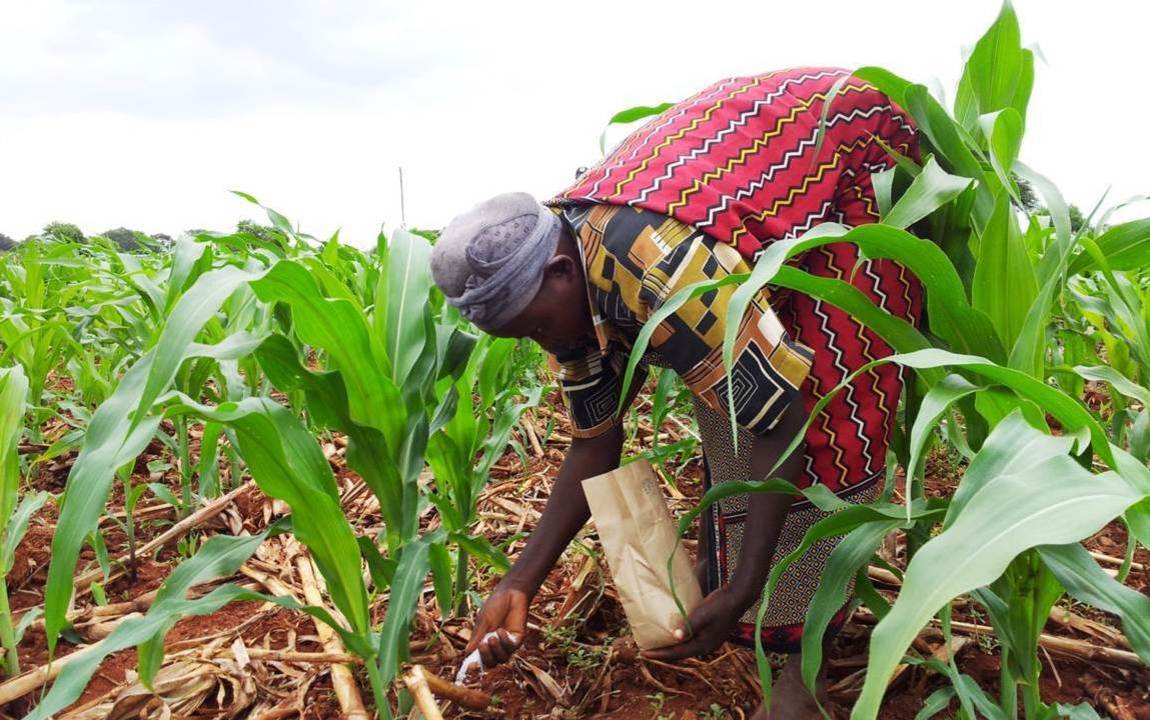Most of the time, conversations about the impacts of climate change on crop yields focus on the resilience (or lack thereof) of the crops themselves. How does the crop react to warmer air temperatures? How does it react to longer dry seasons, or to heavier rainfalls?
Often missing from these conversations is the critical role that farmers play. Farmers make decisions throughout the growth cycle, adjusting practices and inputs to changing conditions, that can have major impacts on the yield of their crops, and climate can affect these decisions.
Understanding how and how quickly farmers adapt to climate change can help to inform the allocation of scarce public resources to preserve high crop yields. This includes ways in which farmers react to temperature increases, and to increased stresses on crops arising from warmer weather. For example, levels of insect activity are strongly influenced by the ambient air temperature. Similarly, weeds that compete with crops for nutrients, moisture, light and space are also influenced by conditions such as temperature and humidity.
A new paper, published in The Economic Journal, examines this relationship between weather and farmer behavior. We looked at survey data from a set of representative farmers in Kenya’s main maize cultivating provinces, combining this with detailed village level data of daily weather variables including temperature, rainfall, humidity, and soil moisture. Average daily temperatures in the villages we studied ranged from 12-29 degrees Celsius, a span over which maize yields typically increase with warming temperatures. Because maize only declines physiologically due to heat stress above 29-30C, any adverse effects on yields could be more cleanly attributed to indirect, biotic stresses arising from the temperature response of pests and pathogens.
We found that as the incidence of pests, crop diseases and weeds increases in response to warmer weather, farmers increase defensive investments on loss-reducing inputs such as pesticides, which diverts resources from productivity-enhancing technologies like fertilizer. Specifically, an extra day above 22C relative to a day below 18C in the initial growth period led to a 12% increase in the intensity of pesticide use in households sampled, and reduced fertilizer application rates per acre by 10%.
Our findings indicate that, as farmers shift inputs during growing seasons to adapt to climate-driven warming, agricultural production may be affected—even in regions where temperatures are not high enough to directly adversely affect crop growth. This may prove a difficult challenge for low-income agricultural communities, where trade-off decisions between defensive investments (e.g., pesticides) and productivity investments (e.g., fertilizers) must be made.
These findings can help decision-makers approach climate change policies more holistically, by considering both the direct and the indirect consequences of warmer weather on yields. For example, by looking at changes in farmers’ behavior, policy makers could provide smallholders with credit for fertilizer so that they are not forced to sacrifice increased productivity in order to buy additional pesticides and herbicides. Our study also suggests that pesticide and herbicide suppliers should monitor temperatures early in the growing season in order to meet farmers’ demand for these important inputs in a timely manner.
Yanyan Liu is a Senior Research Fellow with IFPRI’s Markets, Trade, and Institutions Division; Emily Wu is an IFPRI Communications Intern.
Funding for this research came from the African Development Bank through the Structural Transformation of African Agriculture and Rural Spaces (STAARS) project generously supported by government of the Republic of Korea through the Korea-Africa Economic Cooperation Trust Fund and the IFPRI-led CGIAR Research Program on Policies, Institutions, and Markets (PIM).







